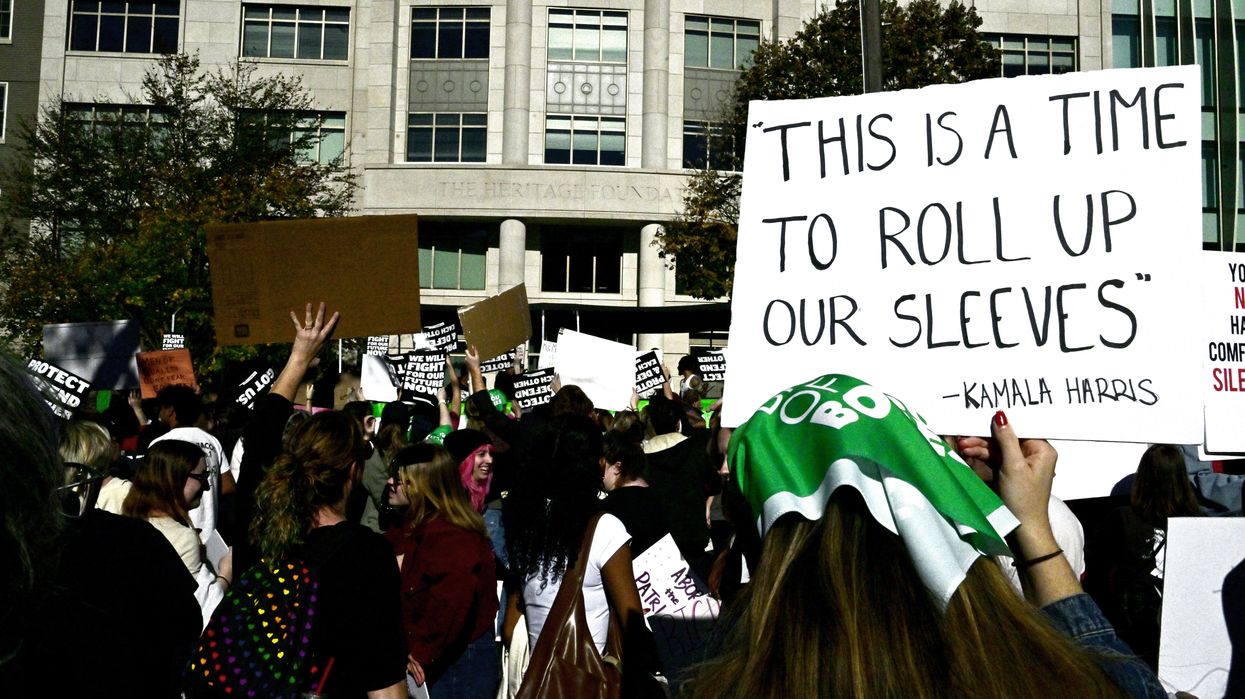It’s tough sledding for Democrats, as they try to wrap their heads around Donald Trump’s improbable-but-also-foreseeable sweep of all seven swing states and winning the popular vote.
This wasn’t supposed to happen, after all. Democrats genuinely believed — as they did in 2016 — that Trump’s many odious qualities would be enough to keep him far away from the White House again.
And if for some reason that wasn’t enough for most Americans, they had in Vice President Kamala Harris a woman of color who, apparently, by virtue of her identity alone, would help seal the deal among those voting demographics.
And if that wasn’t enough, there was always … Beyoncé.
But it didn’t go that way. Voters overlooked Trump’s crimes and insults. Plenty of women and voters of color didn’t vote for Harris just because she was a woman or a minority, and celebrities didn’t deliver a Dem to the White House. And so the blame games have begun.
In a closed-door meeting for House Democrats last week, one congressional member suggested it’s party consultants who are to blame for reelection failures down-ballot.
But candidates with ears shouldn’t have needed consultants to tell them what voters already were — that they were worried about the economy.
Another member blamed President Biden’s support of Israel in the Gaza war for Dems’ losses. But just 4% of national voters named foreign policy as their top issue at the polls — and among Harris voters, it was just 3%.
Former House Speaker Nancy Pelosi blames Biden for staying in the race too long. At least some in the Harris camp do, too, with one aide saying, “Joe Biden is the singular reason Kamala Harris and Democrats lost tonight.”
But over in Biden world, some fingers are pointing back at Harris for “benching” the president. Another wondered, “How did you spend $1 billion and not win? What the f***?”
Among some progressive voices, there’s another culprit: White women.
MSNBC host Joy Reid argued, “This will be the second opportunity that white women in this country have to change the way that they interact with the patriarchy,” she said.
Another MSNBC host, Symone Sanders-Townsend, also pointed a finger at white women: “I understand there are white women out there that voted for Kamala Harris, but baby 52% of y’all voted for Donald Trump. And this was not the first time. So you’ve got to come together and address it internally.”
Huh? The voters who didn’t vote for your candidate have to discuss amongst themselves why they let you down — instead of Dems asking what they did to lose that voting bloc?
This all ignores some very obvious, but apparently painful, realities for Democrats: their policies are unpopular.
If we take voters at their word — and we’d be wise to — the economy was by far their No. 1 concern throughout this election.
A majority of voters with a total household income under $50,000 voted for Trump. A majority of voters making more than $100,000 voted for Harris. Among people who said their family’s financial situation is better today than four years ago, 82% voted for Harris. Only 14% voted for Trump. Among people who said inflation caused their family severe hardship, 74% voted for Trump. Of people who said the economy is not so good or poor, 70% voted for Trump.
Don’t these numbers tell you just as much, if not more, about why people voted for Trump?
This was a clear rejection of Biden and Harris’ inflationary economic policy — stimulus checks, tariff hikes, student loan forgiveness, anti-tech and antitrust policy, and regulatory burdens on small businesses.
On immigration, voters also resoundingly rejected Democrats’ asylum policy of open borders and sanctuary cities. Not because voters are racist, but because the policy demonstrably doesn’t work — just ask Democratic mayors and governors.
On crime, voters rejected Dems’ soft-on-crime policies — slashing police budgets, refusing to prosecute entire categories of offenders, and releasing violent criminals back onto the streets.
But for any political party, policy, even if it’s obviously bad, is the hardest thing to part with or even re-examine. It’s why you hear so much more about needing to tweak messaging, improve the ground game, reach new voters, field fresh candidates, and other things that ignore the obvious — that voters don’t think your policies are working.
And there are plenty of policy areas where majorities agree with Democrats — abortion being just one.
But it seems like the left is determined to make this excruciating loss about messaging, identity politics, and the inherent awfulness of voters.
In the words of one Dem consultant, “Kamala Harris wasn’t a flawed candidate. America is a flawed country.” Trust me, that’s no way to win voters back.
Solving their problems through policy is.
Cupp is the host of "S.E. Cupp Unfiltered" on CNN.
©2024 S.E. Cupp. Distributed by Tribune Content Agency, LLC.


















 From left to right: Gabriel Cardona-Fox, Bud Branch, Joe Concienne
From left to right: Gabriel Cardona-Fox, Bud Branch, Joe Concienne 
Trump & Hegseth gave Mark Kelly a huge 2028 gift